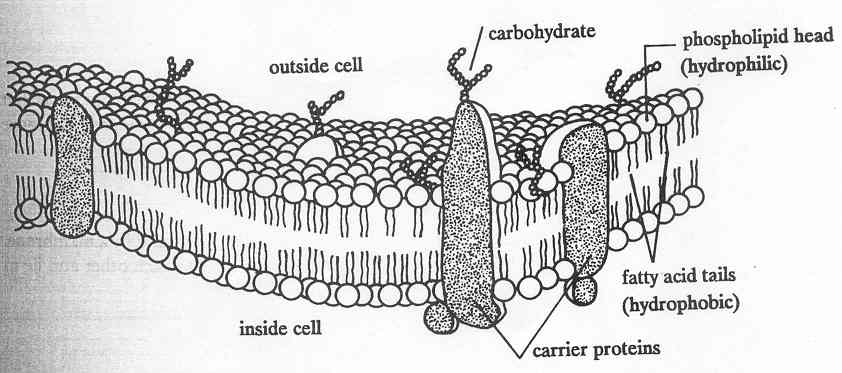In my 900W microwave it takes 1/2 inch water 1 minute to boil and around 30 seconds to become hand-hot, (I know it may take a bit longer when heating a lemon with the skin acting like an insulator although this effect will be lessened due to the high oil content of the zest). You probably won't 'boil' the lemon however if you did it would produce by far the most juice as the water in the cells would turn into steam and burst creating a semi-juiced lemon before you've even cut it in half.
A cell membrane is made up of many intricate structures, one of which is fatty acid tails. When these melt the cell becomes more 'fluid' and becomes more permeable. This fatty acid melts at around 65 degrees. This would create a lemon that is a lot more flexible and juicy. Cell membrane diagram.
Cell membrane diagram.
Based on this evidence, I personally would say that microwaving a lemon actually could help with juicing, the effect will be most noticeable when you're juicing a lot of lemons without a juicer.

 Cell membrane diagram.
Cell membrane diagram.